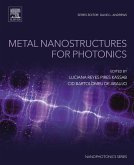The starting point of the book is the standard microscopic definition of molecular Hamiltonians presented in commonly accepted modern quantum mechanical notations. Major assumptions and approximations involved in constructing Frenkel-type exciton Hamiltonians, which are well established, but are often hidden under arcane notations and approximations of old publications, are presented in detail. This will help quantum chemists understand the major assumptions involved in the definition of commonly used exciton models.
Rate theories of exciton dynamics, such as Förster and Dexter theories and their modern generalizations, are presented in a unified and detailed manner. In addition, important aspects that are often neglected, such as local field effect and the role of fluctuating environments, are discussed. Various quantum dynamics methods allowing coherent dynamics of excitons are presented in a systematic manner in the context of quantum master equations or path integral formalisms. The author also provides a detailed theoretical explanation for the major spectroscopic techniques probing exciton dynamics, including modern two-dimensional electronic spectroscopy, with a critical assessment of the implications of these spectroscopic measurements. Finally, the book includes a brief overview of major applications including an explanation of organic photovoltaic materials and natural light harvesting complexes.
- Covers major theories of exciton dynamics in a consciously concise and easily readable way
- Bridges the gap between quantum dynamics working with phenomenological exciton Hamiltonian and quantum chemistry construct reliable models amenable for dynamics calculations from ab initio calculations
- Explores modern nonlinear electronic spectroscopy techniques to probe exciton dynamics, showing how it is applied
Dieser Download kann aus rechtlichen Gründen nur mit Rechnungsadresse in A, B, BG, CY, CZ, D, DK, EW, E, FIN, F, GR, HR, H, IRL, I, LT, L, LR, M, NL, PL, P, R, S, SLO, SK ausgeliefert werden.









